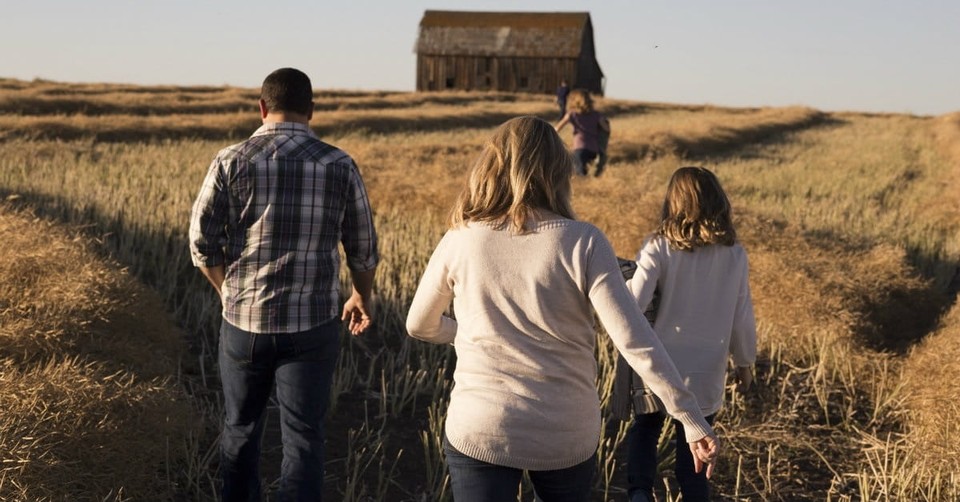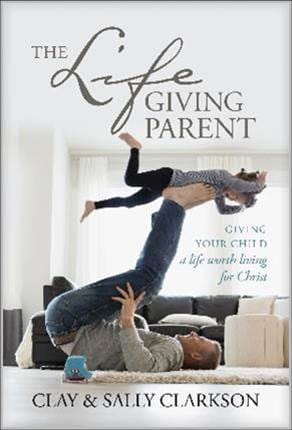What Really Makes A Home ‘Christian?’ Hint: It’s Not About What Your Children Are Doing

Over the last generation, a storm has blown across our Christian cultural landscape with the ferocity of a tornado. It picked up our values of home and family and carried them and us to a new place that is strange and unsettling. Like Dorothy, in The Wizard of Oz, we’re wandering along a well-trodden path to the Great and Mighty One, trying to make sense of the new world we see around us. And in our hearts, despite the changes we’re experiencing, we still believe, “There’s no place like home.”
We’re naturally fascinated by the big, culture-defining changes—changes in society, industry, commerce, education, governance, technology, fashion, leisure, and others. But most of us, as believers in Jesus and His teachings, don’t really change inside when things change around us—we still want the fundamental human values and virtues we believe in to remain the same. Whatever else is changing, we expect foundational biblical truths to stay firm. It’s an article of our faith. But now that’s being challenged too.
The cultural changes we’re seeing in our current time “under the sun,” not just in matters of home and family but also in attitudes toward Christian truth and morality, are of the fundamental kind, the ones we couldn’t or didn’t want to see coming, but that now we cannot avoid—shifting attitudes about sexuality and marriage, the prevalence of divorce and fragmentation of families, conflicting ideas about God, challenges to the Bible’s authority, rejection of once widely held Christian standards and beliefs. We’re seeing increasingly dramatic confrontations over some of God’s foundational “solid rock” truths that provide stability and safety from the storms of life. Even though we as believers are building our homes “on the rock” of Jesus’ words, more and more homes built “on the sand” surround us and are vulnerable to the storms (see Matthew 7:24-27). Sandy foundations for many are being eroded and washed away.
David asks in one of his psalms, “If the foundations are destroyed, what can the righteous do?” (11:3). It’s a good question. What happens when the foundations change? What is our response when our fundamental values are no longer honored? What do we do when the foundations we live by are rejected by those around us, or even by our country? Or when rulers over us do not affirm or protect our cherished ways of life as Christians? As a psalmist of Israel, David’s answer was a simple reminder of what followers of God have always known to do—to trust God because He reigns from His temple in heaven and will protect the righteous (see 11:4, 7).
When the foundations and fundamentals of Christianity that have provided stability for us for so long are rocked by challenge and change, the answer is not to panic, or fight, or just give up. The answer is, in fact, to be like Dorothy in Oz—to adjust and adapt, keep going, keep believing, and never give up the vision of home. The biblical answer to David’s question, and to ours, is to trust that the God we know is faithful and the ancient paths we know are good. In other words, when things are changing around us, we stay faithful and stay the course. In that path alone we’ll find peace in the midst of conflict.
Whatever else we may do in response to the changes happening around us, the one thing we cannot do is neglect our families. We need to bring our children into contact with the living God whom we serve so they will want to serve Him too. And we must be committed to building the kind of homes that can withstand the storms of culture blowing in with those changes—the kind of lifegiving home Jesus said is built on the rock of His Word (see Matthew 7:24-27).
Lifegiving parenting is not about changing the culture we live in but about being a counterculture to it. It’s not about creating a comfortable Christian subculture insulated from the surrounding world; rather, it’s about being the kind of lifegiving home culture that will stand as a testimony of God’s biblical design for family to a lost world whose sandy foundations are washing away. It’s not about being a political or social “culture warrior” for the family but about definitively, and maybe even defiantly, building a home where the living God of Creation is undeniably living through the family within it.
Lifegiving parenting is about bringing the life of God into your home and family to create, with Him, an outpost of the Kingdom of Heaven in this world. We can call that place a “Christian home,” but Christians often have very different ideas of what those words mean.
Throughout the quarter-century of what I call our Christian home and parenting ministry, we’ve met and seen many families with life-affirming and life-infused Christian homes, where the presence of God was unmistakable in the parents’ vision for their biblical roles and in the spiritual home life they were cultivating for their children. However, we’ve also observed many American Christian families where the parents, though unquestionably believers, seemed minimally engaged in the spiritual life of the home or their children. If asked to give a reason why theirs was a Christian home, they might answer by focusing mostly on what their children were doing—“My kids go to church, Sunday School, Bible club, youth group, and camp; have all the best Christian music, videos, books, and apps; attend a Christian school; go to VBS and Christian activities; and have great Christian friends. Of course they’re being raised in a Christian home.”
There’s no question that exposing children to so many good and godly Christian influences can be a positive thing. However, it can also become a negative thing if Christian consumerism becomes either an unintentional or preferred substitute for the life of God in a family. We need to distinguish between a home that is considered Christian primarily because cultural Christianity happens there and a home that is Christian because Christ is alive and present in perceptible ways. Here’s the reality that needs to be affirmed: A distinctively Christian home can never be defined only by what the children are doing; it must be defined by what the parents are doing.
Despite what the pervasive Christian culture many of us live in may lead you to believe, no amount of Christian activities, materials, or media for your children will be able to make your home a Christian home. Those can all be good, edifying, enjoyable, and fun for your family, but they are powerless in themselves to bring the life of God into your home. Only you—parents alive in Christ because of the Holy Spirit within you—have the ability and the power of the Spirit to make your home a Christian home. Engagement with Christian culture does not define a Christian home; engagement with the living Christ does. That understanding is a necessary first step on the path to becoming a lifegiving parent.
Adapted from The Lifegiving Parent: Giving Your Child a Life Worth Living for Christ by Clay and Sally Clarkson. Copyright © 2018. Used by permission of Tyndale House Publishers, Inc. All rights reserved.

Sally Clarkson is the beloved author of multiple bestselling books, including Own Your Life, The Lifegiving Home, The Lifegiving Table, and Different. As the mother of four adult children, she has advocated relentlessly for the power of motherhood and the influence of home through her Mom Heart conferences (www.momheart.com), speaking to audiences on several continents. Sally encourages many through her blog, www.sallyclarkson.com, and through her popular podcast, At Home with Sally and Friends.
Photo courtesy: Pexels
Originally published May 08, 2018.




